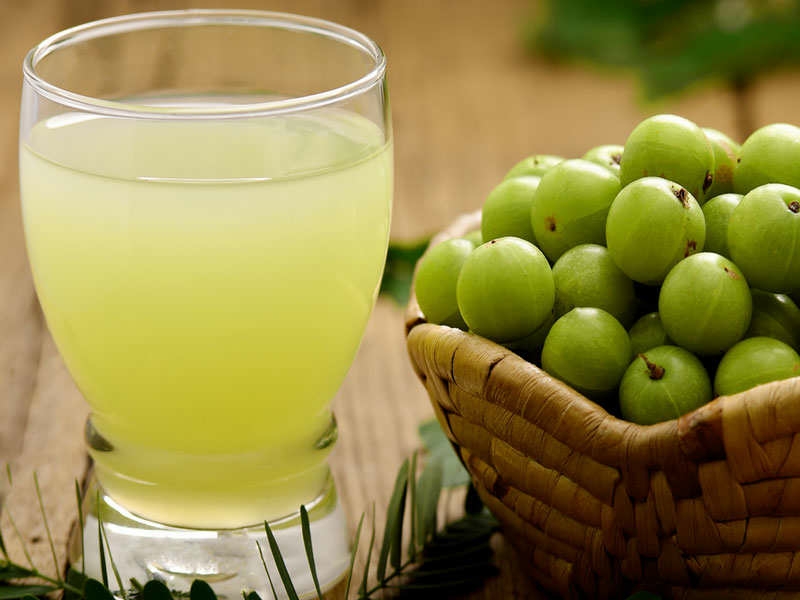Due to change in lifestyle and eating habits, the increasing frequency of gastric symptoms are seen in people, the most common being peptic ulcer. Peptic ulcers are a broad term that include ulcers of the digestive tract in the duodenum or stomach. These occur due to the erosion of lining of stomach or the duodenum. Spicy food and stress have been found to be aggravating factors.

What are the causes of Peptic Ulcers?
According to Ayurvedic aspect, the most common cause of ulcers is the vitiation of both Pitta and Vata dosha. Master Charak has described that one of the common causes of peptic ulcer is the deranged Agni. The actual ulceration of stomach wall which is the classic description of a peptic ulcer is clearly due to the excessive amount of heat or prakupit pitta in the body. The intensity of stress is the main factor behind Vataja ulcer. So, to treat peptic ulcer, the herbs that pacify both Pitta and Vata dosha, sheet (cold) in virya and madhura (sweet) in vipaka should be administered.
What are the symptoms of Peptic ulcers?
- Pain increases on taking food
- Pain is relieved after vomiting
- Pain in chest or upper abdomen
- Belching, heartburn, nausea, vomiting
- Abdominal discomfort
- Passing excessive amounts of gas
- Loss of appetite
Herbs useful in Peptic Ulcers are:
- Amla (Emblica officinalis): Amla, commonly known as Indian gooseberry is the most important medicinal plant in the Indian traditional system of medicine. It belongs to Euphorbiaceae family. It is very potent in providing relief from heartburn and an acidity regulator. Amla is rakt-pittahara, amalpitta nashaka and cold in potency. These properties regulate the reconstruction of tissues by reducing the damage. Due to its Madhur vipaka, it pacifies Pitta dosha.
- Triphala: Triphala is a popular remedy for the treatment of peptic ulcers. It is a combination of three fruits: Haritaki (Terminalia chebula), Vibheetaki (Terminalia bellerica) and Amalaki (Emblica officinalis). Triphala strengthens the gastrointestinal tract. It is categorized among the rejuvenators and traditionally been used is various gastric disorders including inflammation of the intestine. It is also a good liver tonic.
- Gotukola (Centella asiatica): Gotukola is known as Mandukparni in Sanskrit. It belongs to Apiaceae family. It is used extensively as Rasayana. It improves digestive fire, relieves stress, useful in lack of interest in taking food, relieves inflammation etc. It is also useful for the treatment of sluggish liver. As anxiety and stress are the main factors behind ulcer, gotukola herb is quite useful in peptic ulcer.
- Mochrus (Salmalia malabarica): This herb is commonly known as Silk Cotton Tree. It belongs to bombocaceae family. It is categorized among the astringent group of herbs and has cold potency. The roots, bark and flowers of this plant are coolant in nature and prevents ama production.
- Lodhra (Symplocos racemosa): In English, it is known by the name Lodhra. It belongs to symplocaceae family. This herb is mainly used in diarrhoea and bleeding disorders. It is useful in peptic ulcer due to its cooling properties. Due to its astringent and bitter tastes, it balances Pitta and Kapha dosha.
- Nagkesar (Mesua ferrea): Nagkesar is commonly known as Ironwood. It belongs to the family Guttiferae. It is widely used for all kinds of bleeding disorders that are caused due to aggravation of Pitta dosha. It is a useful herb in the treatment of peptic ulcers, vomiting, migraine etc.
- Lajjalu (Mimosa pudica): It is commonly known as Touch-me-not plant. It belongs to the family Leguminosae. This herb is light to digest, undergoes pungent taste conversion after digestion, coolant in nature, reduces vitiated Pitta and Kapha doshas. It is useful in peptic ulcer as it provides relief in inflammation, burning sensations, diarrhoea due to excess Pitta, dysentery, bleeding disorders etc.
Tips:
- Consumption of alcohol, frequent use of NSAIDs or corticosteroids are the factors that precipitate the peptic ulcer. These should be avoided.
- Excess intake of spicy and non-vegetarian foods should be avoided as they aggravate hyperacidity symptoms or consequent corrosion of gastric mucosa.
- Consumption of tea, coffee should be avoided.
- Taking licorice and asparagus as a home remedy are also beneficial.
- Staying calm and avoiding anger should be practiced.
So try these herbs and tips for peptic ulcers and sure you will see a good change in your symptoms. Diet plays a very important role to keep you away from diseases so follow that along and combat this disease permanent. Take care!
Disclaimer:-
This article is not a substitute to the standard Medical Diagnosis or personalized Ayurvedic Treatment! It is intended only for Information!
For experts consultation, please write us at care@blessayurveda.com.
3,443 total views, 1 views today